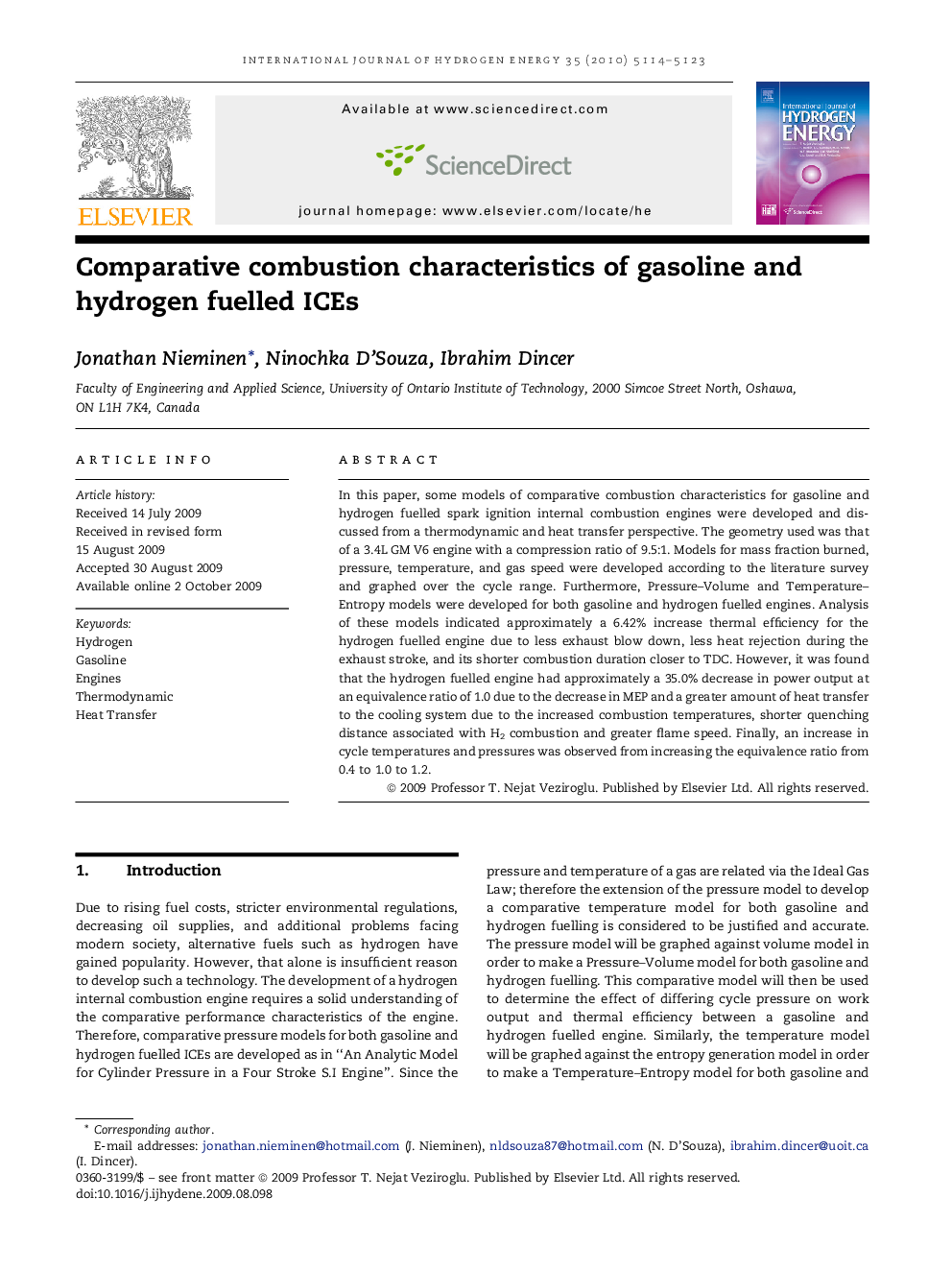| Article ID | Journal | Published Year | Pages | File Type |
|---|---|---|---|---|
| 1282859 | International Journal of Hydrogen Energy | 2010 | 10 Pages |
In this paper, some models of comparative combustion characteristics for gasoline and hydrogen fuelled spark ignition internal combustion engines were developed and discussed from a thermodynamic and heat transfer perspective. The geometry used was that of a 3.4L GM V6 engine with a compression ratio of 9.5:1. Models for mass fraction burned, pressure, temperature, and gas speed were developed according to the literature survey and graphed over the cycle range. Furthermore, Pressure–Volume and Temperature–Entropy models were developed for both gasoline and hydrogen fuelled engines. Analysis of these models indicated approximately a 6.42% increase thermal efficiency for the hydrogen fuelled engine due to less exhaust blow down, less heat rejection during the exhaust stroke, and its shorter combustion duration closer to TDC. However, it was found that the hydrogen fuelled engine had approximately a 35.0% decrease in power output at an equivalence ratio of 1.0 due to the decrease in MEP and a greater amount of heat transfer to the cooling system due to the increased combustion temperatures, shorter quenching distance associated with H2 combustion and greater flame speed. Finally, an increase in cycle temperatures and pressures was observed from increasing the equivalence ratio from 0.4 to 1.0 to 1.2.
